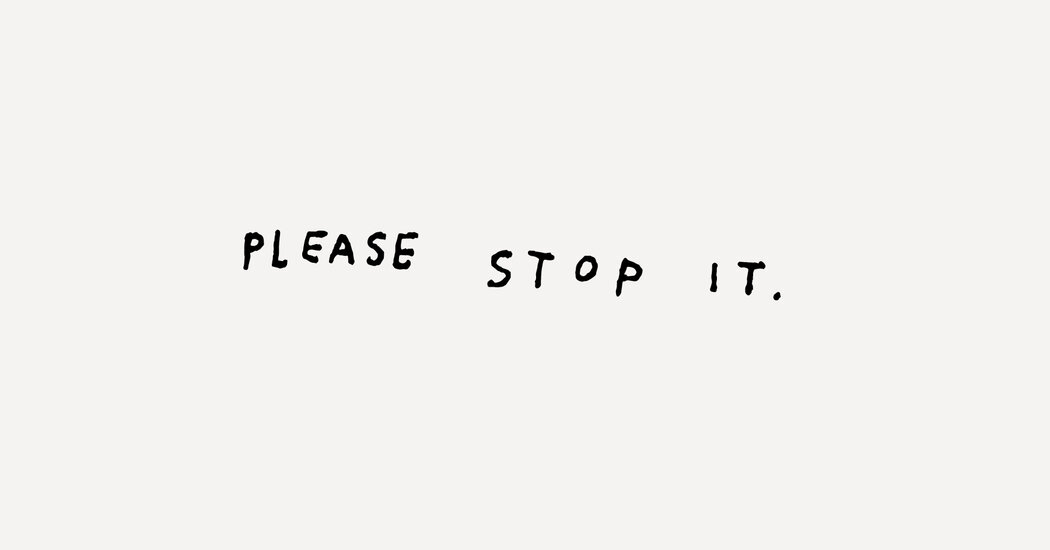Once upon a time, it is often suggested, people with starkly different viewpoints were able to convene and compromise and find hallowed common ground. This all happened in a “better time,” one invoked in fraught political discussions in which the discourse is not happening in exactly the way the invoker prefers. If only we could get back to that place, we could solve all our problems. We could overcome our differences. We could create lasting change.
It’s easy to look upon the past with rose-colored glasses, to assume that whatever compromises people were once able to make came easily to well-mannered gentlemen and perhaps a few gentlewomen engaged in debates. Our assumption that the past was more civil is such a beautiful lie, one that serves only the people so desperately willing to believe it.
Open letters are not new; they have served as rhetorical tools for at least two centuries, from Émile Zola’s “J’accuse” to the Rev. Dr. Martin Luther King Jr.’s “Letter From Birmingham Jail.” As a means of personal empowerment, they allow people to use their voices, to advocate causes for which they hold affinity, to bring attention to important social issues, to express outrage, to defend decisions, to chastise ignorance, to affirm humanity. Open letters are persuasive arguments, but they are also entreaties. Please, hear me, the writers of open letters implore. Please act. Please change. Please.
I am not a fan of open letters, though I recognize their value. I’ve signed a few over the years because doing so felt urgent and necessary. But once the letter was released, I felt a little lost and had no idea where to put the energy of the letter and its pleas. The open letter, as a genre is, in this way, far too limited. We speak with conviction, and then what?
We need not have solutions to every issue we bring attention to, but the constant volley of open letters does not really address the problems with which they are concerned. In some cases, these letters only encourage audiences to become even more attached to their convictions. If, in the best case, an open letter really influences people to change their minds, where do they go with their newfound perspectives? If an open letter offers practical steps forward, how does it create space for what happens after we vote or bring awareness about an issue to our social circles?
In 1962, James Baldwin wrote a searing letter in which he grappled with the fraught, racist future into which his nephew would come of age. Mr. Baldwin wrote, “You were born where you were born and faced the future that you faced because you were black and for no other reason. The limits to your ambition were thus expected to be settled. You were born into a society which spelled out with brutal clarity and in as many ways as possible that you were a worthless human being. You were not expected to aspire to excellence. You were expected to make peace with mediocrity.”
This was a message for his nephew, but it was also for any Black person or other person of color trying to reconcile the realities of racism. And it was a reckoning for a white audience about the ways bigotry seeks to limit the Black imagination. That’s the beauty of open letters: There is your intended audience and then all the ancillary audiences to which you have access, by virtue of the open message.
But open letters are not always as profound or noble or edifying. At their worst, they are thinly veiled opportunities for the writer(s) to air grievances to like-minded individuals or share unfiltered, unrefined opinions of little substance. They purport to reach a specific audience for a specific reason, but really, these letters are often undisciplined monologues. The writers are preachers, standing at powerful pulpits, all call and little interest in response.
Before the rise of the internet, open letters could have a significant impact because most people had few avenues for expressing their ideas to a large audience. But now, when we send a tweet or post an image on Instagram or make a TikTok, we are, in a sense, sharing a tiny open letter. Please, we say, please hear me. Please see me.
I cannot nor would not dare try to adjudicate a decades-long conflict no person or entity has ever been able to resolve. But over the past several months, I have been struck by the sheer number of open letters various individuals and groups have written in support of Israel, in support of the Palestinians, in support of war, against war, demanding cease-fire, rejecting cease-fire and on and on.
Instead of having conversations, many people have taken to talking at their intended audiences, composing arguments as unimpeachably as possible and trusting that little more needs to be said. Or, because someone else has done the work of crafting an argument, people co-sign a letter’s sentiments without having to expend unnecessary effort or original thought — all reward, little risk.
We are six months past Oct. 7 and the brutal Hamas incursions into Israel. Hamas is still holding more than 100 hostages. At least 33,000 Palestinians, according to the local Health Ministry, have been killed by Israeli military attacks. There is no end in sight to the hostilities. A great many of us are feeling helpless in the face of such an intractable conflict. We want to say and do the right thing without necessarily knowing what that looks like. Open letters have allowed us to scream into the void, innumerable calls begging for some kind of response that might bring an end to so much suffering.
Open letters about Gaza are not a recent phenomenon. In 2014, physicians and scientists wrote a letter for the people of Gaza, denouncing Israeli aggression. In December 2023, Doctors Without Borders and other humanitarian groups wrote an open letter to the U.S. secretary of defense, Lloyd J. Austin, sharing concerns about the civilian casualties of war and requesting that the United States take steps to protect civilians in Gaza. Jewish elected officials in New York wrote a letter, articulating the effects the war has had on their constituents and urging the Israeli government to find a peaceful resolution and protect Palestinians from settler violence. Museum employees and volunteers at the Metropolitan Museum of Art wrote an open letter encouraging the museum to call for an end to the bombing in Gaza and showcase more Palestinian artwork. Workers at several other museums took similar stands. American political appointees wrote an open letter decrying President Biden’s stance on Israel.
These open letters are not solely an American endeavor. More than 60 nongovernmental agencies in Britain wrote an open letter to members of Parliament about the extent of the humanitarian crisis in Gaza and requesting support for a cease-fire motion. Journalists from around the world have written open letters in support of Palestinian journalists and demanding better access to Gaza to report on the destruction and demanding that media outlets more effectively and accurately report on the brutal realities of the war.
In Hollywood there has been a slew of open letters. In one such letter, released days after Oct. 7, actors and entertainment industry executives wrote passionately in defense of Israel, condemned Hamas and demanded the release of the Israeli hostages. In another, actors and artists wrote an open letter to Mr. Biden, calling for a cease-fire. Poets and writers have written open letters, and so have university faculty, lawyers, artists and art workers, philanthropists, college students, researchers, congressional staff members, philosophers and even Holocaust survivors.
Each open letter, no matter what stance it adopts, is earnest, incisive and unequivocal. All the writers and co-signers believe they are right and know the best way forward. As the war continues, so does this chorus of open letters. They are coalescing into a historical record of how people are responding to one of the greatest humanitarian crises of our lifetimes. We need this record, but we also need so much more.
As with the conflict itself, there is, seemingly, little common ground beyond a collective desire to speak and be heard and remain confident in one’s correctitude. This reveals one of the biggest weaknesses of the open letter. We know what the writers of these letters think and feel. We know what they want. But we don’t really know if anyone is listening. We don’t know how to translate those words into meaningful action. We don’t know what could happen if, instead of talking at one another by way of open letters, we found better ways to talk with and listen, truly listen, to one another — to participate in both the call and the response.
Change is difficult. It is incremental. Sometimes, compromise and progress demand sacrifice. Rarely do all people get everything they want. And, I suspect, that’s why we keep turning to open letters. They may not lead to workable solutions, but they do allow us to speak. They won’t provide food and medical care to the people of Gaza, and they won’t bring the hostages home or bring about a cease-fire, but we can articulate what we want without having to engage in the messy and unsatisfying but necessary work of compromise. We can hold fast to our deeply held beliefs without having to question them or grapple with doubt. We can mitigate any helplessness with performance rather than practice.

